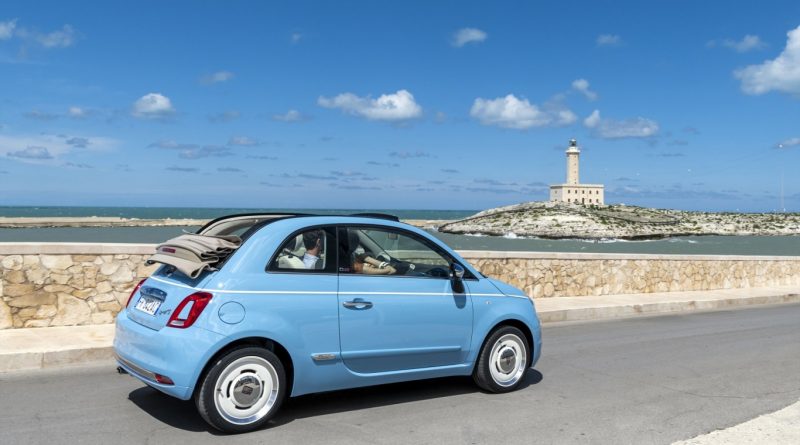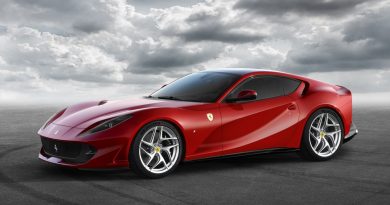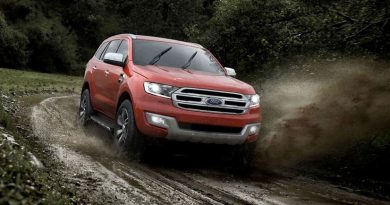Less time at the pump, more fun on the road
Due to increasing crude oil prices and exchange rate depreciation, South Africans now pay record prices for fuel at filling stations. In fact, on Wednesday, the fuel price increased by 99 cents and R1 per litre respectively for 93 Octane and 95 Octane, while the price of diesel increased by R1.24 per litre.
These increases will place even greater financial stress on already-burdened consumers, with commuters who rely on taxi and bus services, expecting a hike in fares to compensate for these increases. The impact of the fuel price increases has been more immediate for South Africans who rely on their own vehicles for their daily commute to work and back.
Tips to increase your mileage from every tank
Scott Seed, Fiat and Fiat Professional Brand Manager at FCA South Africa encourages motorists to utilise the following to help reduce their vehicle’s fuel consumption.
Key tips include:
Don’t be a drag: Various things may cause or increase drag, which in turn will negatively impact the fuel economy of your vehicle. These include driving with the windows open and attaching carriers or bikes to the roof. To decrease drag, keep the windows closed, especially at high speeds, attach additional weight to the rear of the car instead of the roof.
More bling, more economy problems: New wheels and definitly look cool, and can even helpt to improve handling. However, if these are wider than the stock tyres, they’ll create more rolling resistance and consequently, decrease fuel economy. If you upgrade your wheels and tyres, keep the old ones so that you are able to swap your newer ones out for a smoother ride and better economy during long road trips.
Smooth (accelerator) operator: Motorists should aim to drive smoother, meaning less overtaking, using your right foot on the accelerator pedal more sparingly and stopping in a more gentler manner to boost their vehicle’s fuel economy.
Take care of your car and it will take care of you: Don’t skip service periods set out by the manufacturer, as this influences your car’s fuel consumption. Additionally, many components in your car impact fuel consumption and if they’re not working properly, you could be paying a hefty price. Everything from dirty oil and dirty air filters to dirty injectors, a faulty exhaust, worn spark plugs and low coolant levels can contribute to bad fuel efficiency, so make sure they all get a regular check-up.
Phoning a friend to go 50/50: By joining a lift club, you will be able to save fuel and significantly reduce the wear and tear on your car. Moreover, it can also be a great stress reliever, giving you the freedom to relax while someone else is driving.
Commute off peak to hit peak fuel efficiency: Try using flexy time to try and commute outside of peak traffic periods. In addition, if you can avoid major congestion, do. It will end up saving you time, frustration and of course, fuel. If you can’t wait, use the technology at your fingertips by checking alternative, less congested routes, on traffic apps like Waze.
These tips should help motorists optimise the use of every drop of petrol or diesel that they fill their car up with, and ultimately assist in softening the impact of the most recent fuel hikes. Those buyers already in the market for a new affordable car that offers beautiful design, sporty handling and fuel efficiency, should be aware of a couple of great options to consider.
At FCA, the Fiat brand always keeps fuel efficiency in mind, when designing automobiles. For example, the Fiat 500’s 0.9 litre TwinAir Petrol engine delivers combined fuel usage figures of just 4.6 litres per 100 km. Another option for motorists looking for affordable cars that can provide excellent running costs is the Fiat Panda 900T, which is rated as the most fuel efficient four door, four-seater petrol powered car in SA, returning a mere 4.2 litres per 100 km on a combined cycle (a mix of highway and town driving). Families can opt for the Fiat Tipo sedan, especially the derivative powered by a 1.3-litre turbodiesel engine, as this powerplant is particularly fuel efficient thanks to a claimed fuel consumption figure of just 3.7 litres per 100 km.
Less time at the pump, more fun on the road https://t.co/eCsJ28nOh9 #ArriveAlive #SafeFuelTips pic.twitter.com/b5HMH0jSm0
— Arrive Alive (@_ArriveAlive) October 9, 2018




